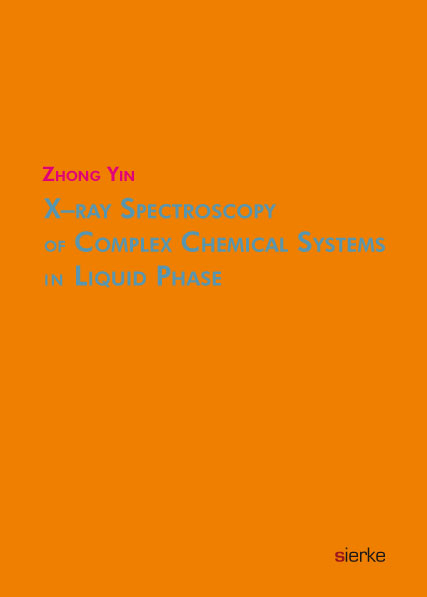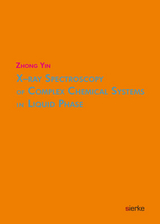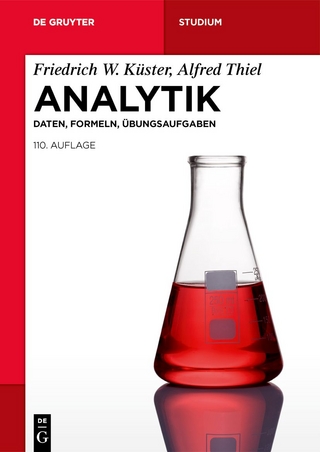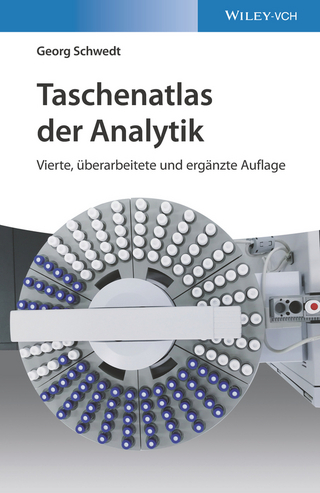X–ray Spectroscopy of Complex Chemical Systems in Liquid Phase
Seiten
2017
sierke VERLAG - Sierke WWS GmbH
978-3-86844-877-1 (ISBN)
sierke VERLAG - Sierke WWS GmbH
978-3-86844-877-1 (ISBN)
Modern light sources like synchrotron and free electron laser facilities
provide high brilliant, monochromatic and high coherent X–ray beam
with tunable photon energies covering almost the whole electromagnetic
spectrum. These unique properties of the light sources enable to
implement novel experimental methods for investigating dynamical
chemical processes.
The atomic components of chemically relevant systems and solvents
essentially consist of light elements. The chemical reactivity of these
systems are primarily defined by their electronic configurations. Information
about the electronic structure would elucidate the understanding
of chemical processes and reactions on a fundamental level.
This is one prerequisite to obtain a complete picture of the chemical
characteristics. Aqueous solutions and isomerization processes are
elemental phenomena in nature. However, the description of these
mechanisms on the molecular level is not complete.
In this thesis, static and time–resolved X–ray spectroscopic methods
are described which have been developed and applied to investigate
fundamental chemical interactions of aqueous solutions and isomerization
of molecules on the atomic scale.
The work of my PhD thesis consists of designing and commissioning
an experimental end station including a detection device to perform
the aimed experiments in liquid phase. The goal is to investigate ion–
water interactions as well as isomerization processes. By employing
the X–ray spectroscopic technique, the unoccupied and occupied orbitals
are probed and information about the electronic configurations
are obtained. Concerning the ion–water interaction, the results
showed that the water molecules are mainly influenced by the cation
and that ion specific influences are mirrored in the electronic structure.
Furthermore, the impact of ions is primarily limited to water
molecules in close vicinity. A significant difference between the first
solvation shell and bulk water is observed.
The results of the second phenomenon investigated have shown remarkable
differences in the electronic configuration of trans– and
cis–azobenzene. Furthermore, with X–ray spectroscopy all electron–
hole–pair final states are observed, including the optically dark states.
This fundamental work might help to further elucidate the dynamical
pathways of the isomerization mechanism. Additionally, the first
time–resolved soft resonant inelastic X–ray scattering (RIXS) experiment
at a synchrotron was carried out successfully in an optical pump
and X–ray probe scheme. The future direction and the opportunities
of this relatively young research field of complex chemical systems in
liquid phase will be addressed.
provide high brilliant, monochromatic and high coherent X–ray beam
with tunable photon energies covering almost the whole electromagnetic
spectrum. These unique properties of the light sources enable to
implement novel experimental methods for investigating dynamical
chemical processes.
The atomic components of chemically relevant systems and solvents
essentially consist of light elements. The chemical reactivity of these
systems are primarily defined by their electronic configurations. Information
about the electronic structure would elucidate the understanding
of chemical processes and reactions on a fundamental level.
This is one prerequisite to obtain a complete picture of the chemical
characteristics. Aqueous solutions and isomerization processes are
elemental phenomena in nature. However, the description of these
mechanisms on the molecular level is not complete.
In this thesis, static and time–resolved X–ray spectroscopic methods
are described which have been developed and applied to investigate
fundamental chemical interactions of aqueous solutions and isomerization
of molecules on the atomic scale.
The work of my PhD thesis consists of designing and commissioning
an experimental end station including a detection device to perform
the aimed experiments in liquid phase. The goal is to investigate ion–
water interactions as well as isomerization processes. By employing
the X–ray spectroscopic technique, the unoccupied and occupied orbitals
are probed and information about the electronic configurations
are obtained. Concerning the ion–water interaction, the results
showed that the water molecules are mainly influenced by the cation
and that ion specific influences are mirrored in the electronic structure.
Furthermore, the impact of ions is primarily limited to water
molecules in close vicinity. A significant difference between the first
solvation shell and bulk water is observed.
The results of the second phenomenon investigated have shown remarkable
differences in the electronic configuration of trans– and
cis–azobenzene. Furthermore, with X–ray spectroscopy all electron–
hole–pair final states are observed, including the optically dark states.
This fundamental work might help to further elucidate the dynamical
pathways of the isomerization mechanism. Additionally, the first
time–resolved soft resonant inelastic X–ray scattering (RIXS) experiment
at a synchrotron was carried out successfully in an optical pump
and X–ray probe scheme. The future direction and the opportunities
of this relatively young research field of complex chemical systems in
liquid phase will be addressed.
| Erscheinungsdatum | 23.05.2017 |
|---|---|
| Verlagsort | Göttingen |
| Sprache | englisch |
| Maße | 148 x 210 mm |
| Gewicht | 240 g |
| Einbandart | geklebt |
| Themenwelt | Naturwissenschaften ► Chemie ► Analytische Chemie |
| Naturwissenschaften ► Physik / Astronomie ► Angewandte Physik | |
| Schlagworte | aqueous solution • Azobenzene • electronic structure • Free electron laser • Isomerization • Liquid Jet • molecular dynamics • RIXS • Synchrotroan Facility • Varied line spacing grating • X-ray spectroscopy |
| ISBN-10 | 3-86844-877-2 / 3868448772 |
| ISBN-13 | 978-3-86844-877-1 / 9783868448771 |
| Zustand | Neuware |
| Haben Sie eine Frage zum Produkt? |
Mehr entdecken
aus dem Bereich
aus dem Bereich




